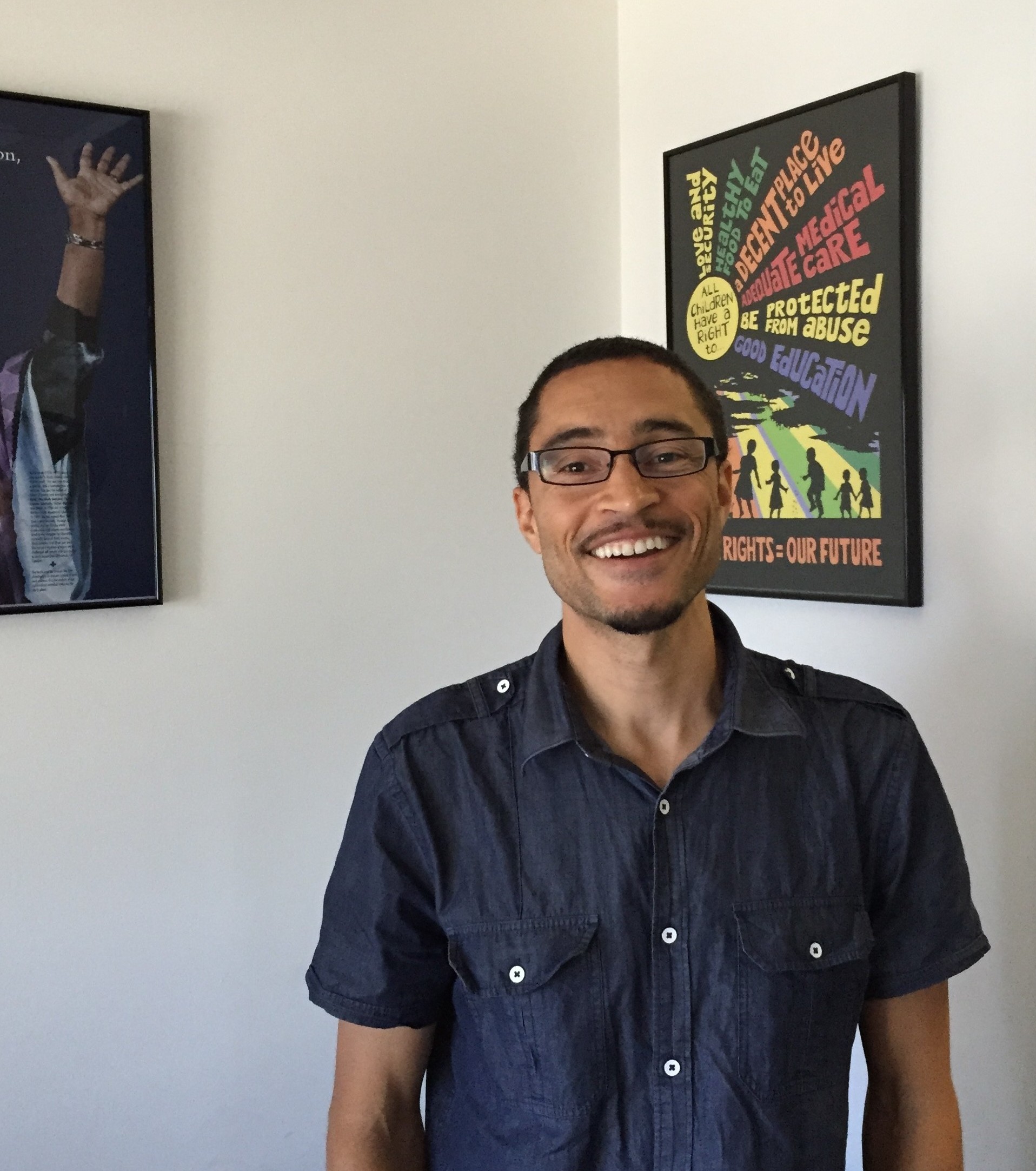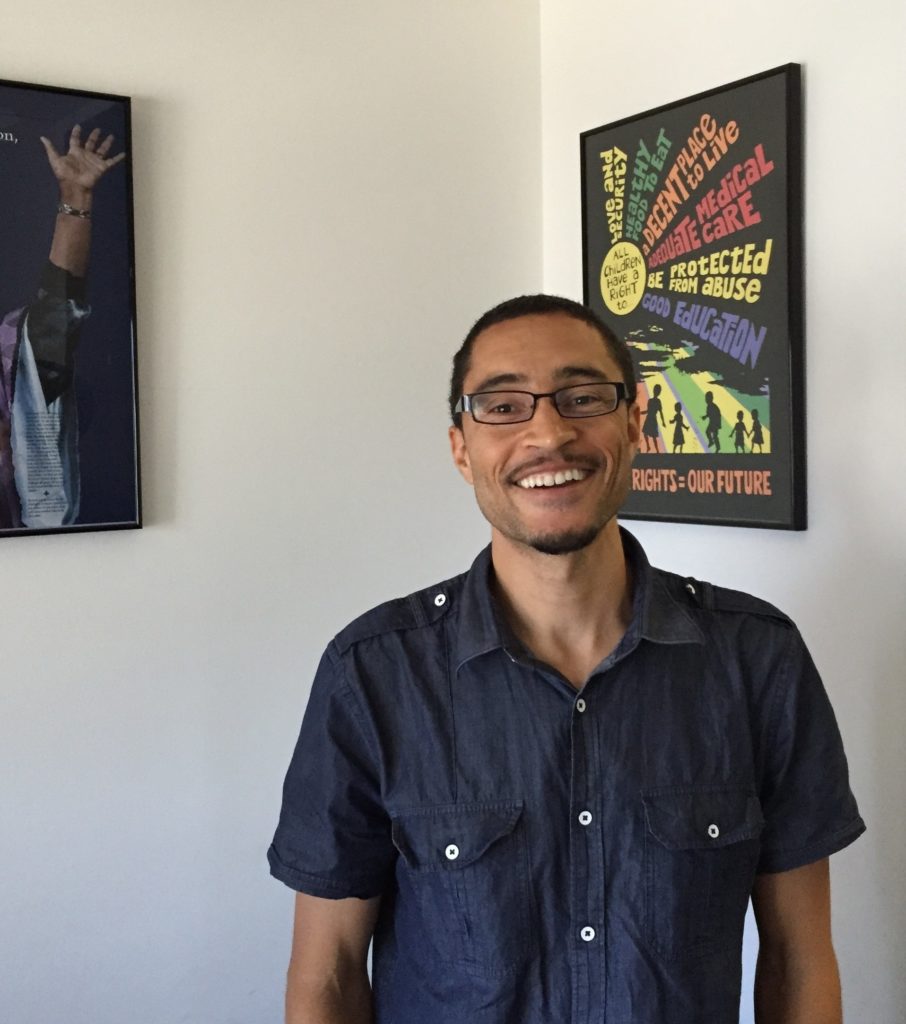
San Francisco native, Zachary Norris, moved to East Oakland when he was about a week old.
He grew up in Oakland but lived a relatively sheltered life until he began his undergraduate studies at Harvard. There he witnessed a fellow student fall from a dorm window due to alcohol and drug over consumption. After the student took a whole semester away from college to get counseling and attend rehabilitation, he returned to class and resumed his studies as if nothing had happened.

That example served as a real eye opener for Norris, especially because it was in sharp contrast to the systematically routine and punitive manner in which substance dependency was dealt with in the cuts of E.S.O. (East Side Oakland).
“In Oakland,” Norris observed, “kids were not allowed to make the same mistakes.”
So when he heard about an organization called Books Not Bars, it made lots of sense to him.
“I understood we needed to invest more in education and needed to invest more in opportunity, especially in low- income communities of color,” he said. The Books Not Bars campaign led Norris to the Ella Baker Center for Human Rights, where he has been the executive director since 2013. He first got onboard with Books Not Bars as a law school student intern participating in a campaign to stop what was called the Super Jail for Youth.
“They had planned here in Alameda County to build what would have been the largest per capita juvenile hall in the country. It would have been bigger than Chicago’s juvenile hall, even though Chicago has around five times as many people as Alameda County. They wanted to build it way out in Dublin (far from most of the families whose kids are in the system still),.” Norris recalled. “We knew that it was going to keep disproportionately impacting young people of color, so we said that the Super Jail for Youth was going to be too big, too far and too racist.”
Since the Books Not Bars campaign launched in 2004, the youth prison population has fallen from 4,800 to 922. The campaign helped close five of the state’s most abusive youth prisons. It also built the first ever statewide network of families with imprisoned children, Families for Books Not Bars, with over 1,000 member families.
The campaign championed three bills, developed from the experiences of families impacted by prisons, which were passed in Sacramento, including the Family Communications Act and the Keeping Families Whole Act.
Leaders and editorial boards across the state have endorsed the call for reform. In 2008, the campaign organized across the state to successfully defeat a “tough on crime” initiative, Prop 6.
In addition, the Ella Baker Center for Human Rights (EB Center) is concentrating on reducing the vast numbers of solitary confinements in youth prisons and their detrimental and life long effects on youth and the communities that they ultimately return to. The EB Center co-sponsored Senate Bill 124 with Senator Mark Leno (D-San Francisco) to help abate the instances of solitary confinements. The Senate passed the bill on June 2, 2015.
The EB Center is interested in Restorative Justice with three key objectives – to help end state- sanctioned violence, provide job training and housing and promote public safety. In July of 2015, Alameda County approved an EB Center measure to start reallocating 50 percent of the county’s prison budget in fiscal year 2016 toward reinvesting in local communities impacted by mass incarceration. The intent is to restore Oakland and neighboring cities in Alameda County that have been affected historically and economically by the great disparity in incarcerating their youth.
Finally, the EB Center has partnered with the ACLU in the development of an important app known as Mobile Justice California. The Mobile Justice CA app allows persons to film instances of police misconduct wherever and whenever. It also sends out alerts to other app operators indicating encounters with police.
A special feature of the Mobile Justice app is that it automatically transmits a copy of the filmed video to the ACLU once the phone stops recording, to help prevent destruction of evidence even if the phone is destroyed or the film deleted.
When I asked Zachary Norris, Esq., about the personal challenges and triumphs of his tenure as director of the Ella Baker Center for Human Rights and previously as director of the Books Not Bars campaign, he stated somewhat solemnly that while progress in the legislative arena is being made, police brutality seems to linger without cessation.
I'm as Oakland-ish as can be. From an early childhood, I remember a fun and carefree life and lots of sunshine and laughter. I remember my father, for example, stowing his swim gear in a light blue denim bag secured with white nylon cords and a charcoal seahorse emblazoned on the light blue pouch. We would then all climb into the station wagon, including our little mutt dog named Pucci, and drive to Alameda beach.

Be the first to comment